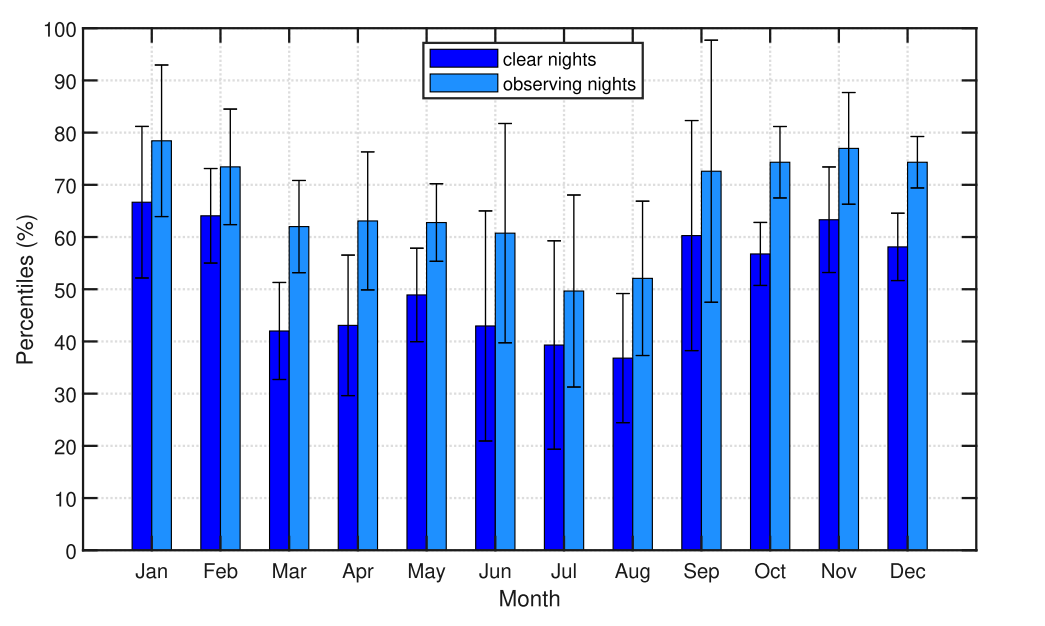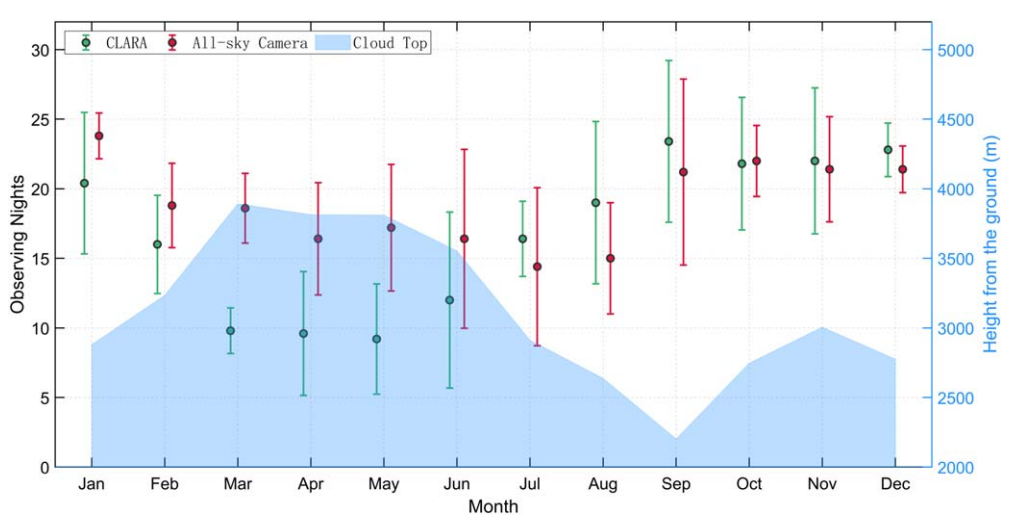For optical astronomical observatories, the cloud coverage during nighttime directly determines the available observing time (AOT) of telescope, which is the most basic parameter in astronomical observations. And using the ground-based all-sky cloud camera to monitor the cloud amount is the fundamental step for astronomical observation site selection.Since the beginning of site testing in January 2017, the ground-based cloud detection has been carried out at the Muztagh-ata site. XU Jing, a senior engineer from Xinjiang Astronomical Observatory, Chinese Academy of Sciences, along with his collaborators have processed and analyzed the night-time ground-based cloud detection data that collected at the Muztagh-ata site from 2017 to 2021 . And the results showed that the site can provide 175 clear nights in a year, and in which 169 nights with at least 4 hours of continuous observing time.
The related results were published in Research in Astronomy and Astrophysics.
From 2017 to 2021, the researchers obtained approximately 34,000 nighttime all-sky images at the Muztagh-ata site. The statistical results of processed images showed that the annual available observing nighttime was 65% in proportion, 66% observing nighttime with 50% of AOT , and 51% of clear nights with AOT more than 75%. The amount of the continuous observing time that more than six hours during the night accounts for 31.1% of the total nighttime.
Moreover, the researchers found that the in the months with the average cloud top heights lower than 3500m from the ground, there were discrepancies between the CLARA (CM SAF cLoud, Albedo and surface RAdiation) data and ground-based statistical results, and that might be caused by the limitation of the capability of the ground-based all-sky cameras to recognize high clouds .
According to the researchers, these results could applied to the wide range of cloud coverage analyzes.

Monthly statistical results for clear nights and observable nights at the Muztagh-ata site.

An analytical examination of the correlation was conducted between the discrepancies in statistical outcomes derived from remote sensing data (CLARA) and terrestrial cloud cover monitoring at the Muztagh-ata site, taking into account the variable of cloud base height.
Contact: XU Jing
Xinjiang Astronomical Observatory, Chinese Academy of Sciences
E-mail:xujing@xao.ac.cn